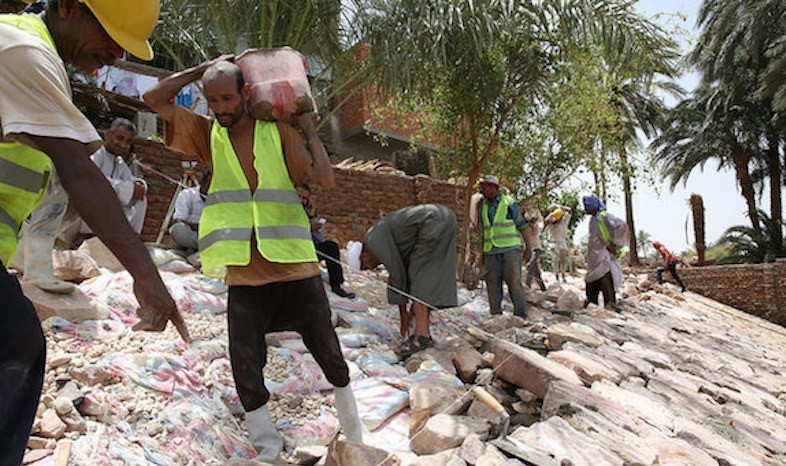How to Overcome Authoritarianism in the Arab Economy
Getting rid of autocracy in the Middle East and North Africa is not just a challenge for politics. The economic sector too suffers under the stranglehold of the “nanny-state”. How to overcome it, depends very much on where you start from.
From his own experience in office almost a year after the overthrow of the dictator Ben Ali, former Tunisian Prime Minister Hamadi Jebali knows that simply moving away from authoritarian rule does not automatically spell the end of a subservient mentality. During a recent Club de Madrid round table discussion in Dubai on the future of political and economic competition in the Middle East and North Africa, Jebali explained that fixation on the state is still curtailing entrepreneurism and civil society’s political emancipation in Tunisia and other Arab countries.
The latest regional report by the Bertelsmann Transformation Index, which was written in cooperation with the Carnegie Middle East Center, describes the nanny state – a state that acts as a type of all-controlling governess – as one of the key development problems in the Middle East and North Africa. Paternalism, combined with nepotism and corruption, leads to a massive squandering of resources and to the (self-)disenfranchisement of the people, as well as stifling any type of initiative. The interplay of these factors is proving to be a significant challenge to both secular and Islamist reformers in the region. Tunisia, which has made the greatest progress towards democracy and the rule of law, is no exception.
How can authoritarianism in politics and business be overcome? Regional experts’ recommendations vary depending on the sub-region.
The rich Gulf States, which have sufficient financial reserves and investment funds to withstand low oil prices even for longer periods of time, should focus on reforming the disenfranchising kafala system, by which labor migrants must have a local sponsor. This system deprives foreign workers of their rights, as they depend on their employer and on sponsorship for their residence permit, legal protection and also the right to leave the country. Bahrain and Kuwait have undertaken – so far quite modest – reforms to reduce arbitrariness and improve regulation. Conversely, the high number of well-paid positions in the administration and state-owned companies keeps the small percentage of people born in the Gulf States from setting up their own business and becoming innovative. A combination of more protective labor migration regulation and reducing the benefits granted to local citizens could weaken authoritarian structures and boost business.
The situation is completely different in North Africa. The economic crisis and especially the socio-economic discrimination against large strata of the population are so obvious that the legitimacy of state dominance has in fact already been shaken to the core. However, Egyptian Carnegie economic expert Amr Adly points out that there is now hardly any talk of structural change – as there was during the first months after the overthrow of the Arab dictators – but instead all the more talk of the need for economic growth at any price. This boosts the conservative forces that defend the deep state, that is, a coalition of interests between the secret service, the military and companies, which pull the strings in the background independently of the government. The restoration of the status quo as it was under Mubarak in Egypt is the best current example of this. At the same time, however, poor population groups also have an interest in the preservation of this system of rule, whose fuel and food subsidies keep them dependent.
The experts from MENA largely agree that it will not be possible to eradicate this pattern of paternalistic rule in the near future. It is thus all the more important to have a counter-discourse that focuses on the longer term and aims to be as transparent as possible. One step would be to increase transparency and accountability and make public the state’s dealings with international companies, while another would be to give statistics offices greater autonomy and have truly unbiased data. Finally, subsidies need to be gradually reduced in favour of socio-political reforms such as support for families in education and health measures.
Dr Hauke Hartmann is Senior Project Manager at the Bertelsmann Stiftung and directs the BTI project Shaping Change – Strategies of Development and Transformation.
Translation from German: Rebecca Hudson
Related BTI
Study: BTI 2014 Report
Political Management in International Comparison
Report: Next Generation Democracy
Trends and scenarios for the Middle East and North Africa

